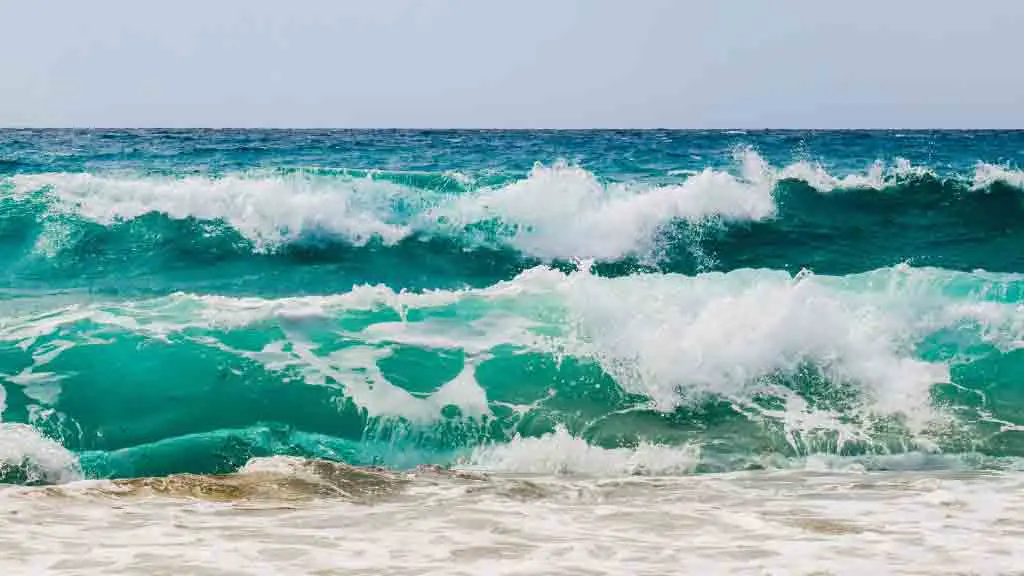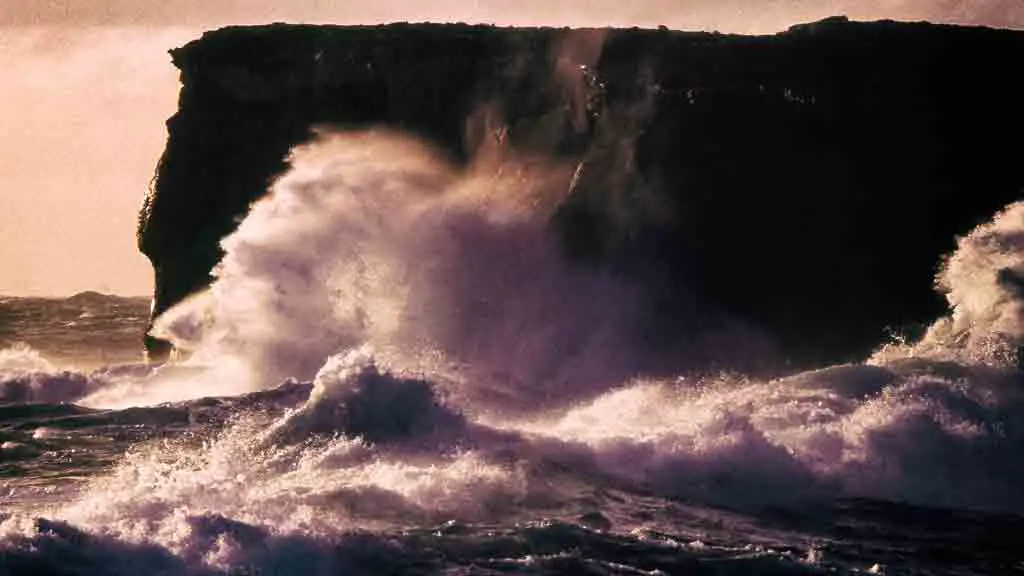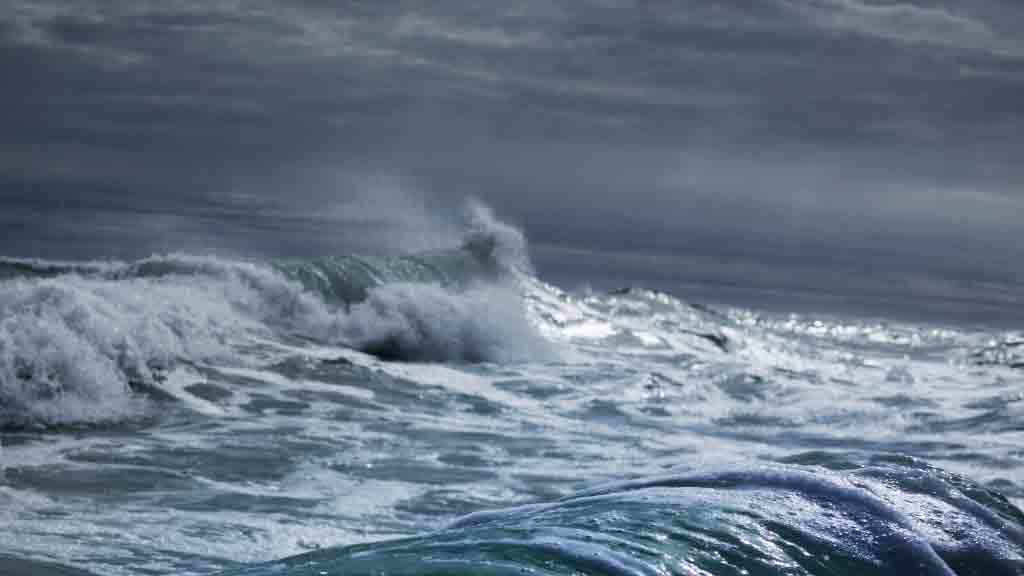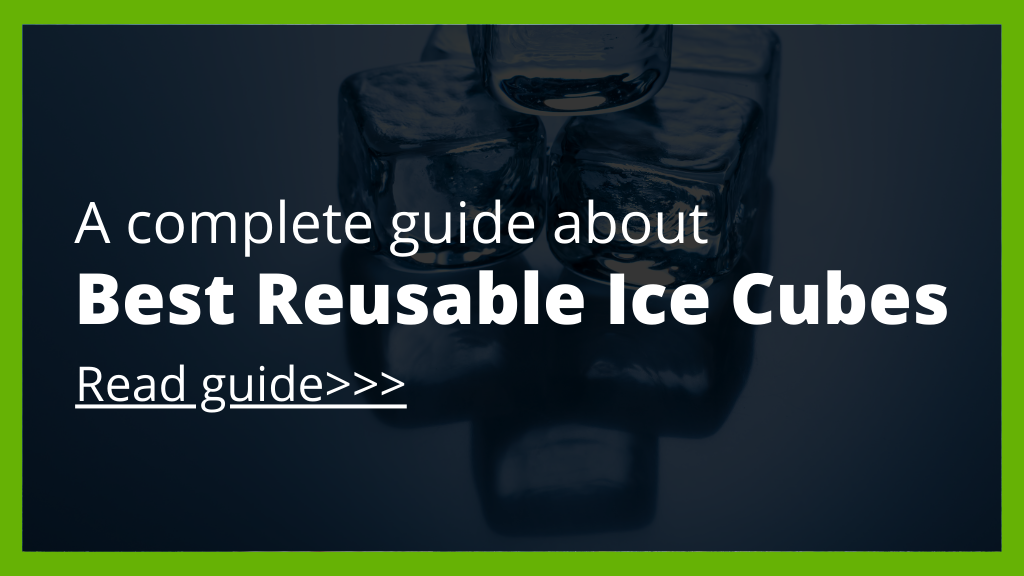Today the human race is searching for better, cleaner, and more efficient ways of producing energy. Wind energy and Solar energy are amazing, and wave energy generation is a relatively unique way of producing energy. However, like all other methods, wave energy advantages and disadvantages are extremely important.
As solar power depends on the presence of the sun while wind energy depends on the wind, wave energy depends on the movement of waves on water bodies, and that’s why it can work 24 hours a day. On the contrary, there are some disadvantages so let’s discuss those.
What is wave energy?
Waves are formed on the surface of water bodies when the wind blows over them. The energy in those waves is enormous, and harnessing that energy from the waves is known as wave energy harnessing. The energy we harness is wave energy, and it is quite challenging to harness.
Click HERE to know everything about what is wave energy
What type of energy is wave energy
There are 2 main types of energy that we can produce renewable and non-renewable energy. Wave energy is a renewable type of energy as we harness it from the motion of waves endlessly created by nature.
Additionally, this type of energy’s economic factor and effectiveness is far better than other types of energy production because it is renewable. While there are certain wave energy advantages and disadvantages to consider, this approach to energy production can be the future of energy generation in our world.
Related article: Is wave energy renewable or nonrenewable
Wave energy Advantages and Disadvantages
Wave energy advantages are the most important to consider when discussing wave energy advantages and disadvantages. So, here we will explain the top 11 wave energy advantages you need to know.

1. Wave energy is renewable energy
One of the most important advantages of waved energy is that it is renewable. Unlike the energy produced by fossil fuels, which is just one-time usage, wave energy is naturally renewable because the motion of waves is endless in this world. Waves come and return, which makes it extremely better in terms of the economic factor.
2. It is good for the environment
Again, comparing wave energy to fossil fuel energy, we can see that it is good for the environment. There are no harmful wastes and other byproducts that can cause harm to the environment. The waves that produce this energy simply go back to the waterbodies, meaning there will be no environmental effect.
3. Wave energy is available abundantly around the globe
With around 70% of the earth being covered by oceans and seas, we can say that this energy is abundantly available across the globe. Every country with a shore can deploy wave energy harnessing plants, and it will be highly efficient for that country to produce renewable energy.
4. There are several different ways to harness the wave energy
One of the best things about wave energy is that we can harness it in several ways. For example:
- Hydro turbine installation
- Seafaring vessels
These were just the two, while many more ways are available to harness this energy. It means that where one method cannot be efficiently used, we can start using the other and continue harnessing this free energy.
5. Wave energy does not cause any damage to the land
When producing wave energy, you do not cause any damage to the land. Fossil fuel energy leaves the earth with massive holes at the extraction sites. Similarly, there are harmful byproducts that can cause land pollution. None of these are the concerns to be careful about when we consider wave energy.
6. Wave energy is easily predictable
Fossil fuel energy is not predictable because we cannot predict if we will find any fossil fuel resource under the surface of earth or not. However, predicting things about wave energy is simple. We can predict weather and the frequency of waves to predict how much energy we will be able to harness.
7. Wave energy is highly reliable
It is a very reliable form of energy because waves are always in endless motion. Solar energy can fail if there are clouds, and windmills can also fail if the winds are not moving fast enough. However, the wave energy can never fail because the motion of tides always remains, and it works in all 4 seasons, making it highly reliable.
8. The offshore harnessing of energy is possible
Unlike other power plants, wave energy harnessing plants can be installed offshore because there are no special restrictions. Thus, wave energy production can also resolve the issue of power plants being too close to the population. The best part here is that these plants’ efficiency increases when waves’ frequency and strength increase offshore.
9. This way of producing energy can produce huge amounts with ease
The power density of wave energy production is easily 30 to 40 kW for every meter of the wave. Now, multiply this amount by every meter of shore covered by wave energy plants. The amount of energy produced by waves can be unbelievably huge and beneficial. The best part is that we can go further in the ocean and use more waves to increase this efficiency.
10. Wave energy moves us towards less dependency on the fossil fuels
Today most of our energy demands are dependent on fossil fuels. We do not know what we will do if we run out of these fossil fuels and the biggest advantage of wave energy advantages and disadvantages is that it is not dependent on them. So, not only does the dependency goes down, but there are many other benefits.
11. No emissions in the air like other ways of energy production
When we produce energy with the help of waves, we are not causing air pollution. No carbon emissions or other harmful gases are escaping through the wave energy generation plants. It is a problem with all of the fossil fuel energy generation plants but natural ways of energy production like wave energy resolve this issue.

Wave energy Disadvantages
Like all other types of energy, wave energy disadvantages also exist, and they are extremely important to consider among all the wave energy advantages and disadvantages. So, the following are the top 8 wave energy disadvantages that you need to know.
1. It is not feasible for every location
Although over 70% of the earth is covered with seas and oceans, wave energy production is still not feasible for every location. It is because some towns and localities are far from the shore, and supplying that energy there could be inefficient.
2. The marine ecosystem is adversely affected
We may think that this way of producing energy is clean and it will not cause any harm. However, in reality, the machinery used to harness the energy and the equipment for installing these plants can change the habitat of creatures that live near the shore. The noise can also disturb the sea life around.
3. The wavelength of the waves is one of the biggest disadvantages
The efficiency of wave energy depends on wavelength because it drives the power plants. It is necessary to have a consistent flow of powerful waves to power the turbines. However, wave energy harnessing will not be as efficient if the wave behavior is not consistent.
4. The performance depends on the weather conditions
Protecting wave energy harnessing plants from extreme weather conditions is a challenge. And the worst thing here is that the performance of these plants also shows a significant drop when the weather is rough. It is because rough weather disturbs and frequency and wavelength of waves.
5. Wave energy creates a lot of noise pollution
If someone lives close to the shore, the wave energy harnessing plants can irritate them a lot with the loud noise. A shore is a calm place, but the noise of huge machinery working in the middle of the ocean can ruin all of this calmness.
6. Wave energy production is not visually appealing
Just like the noise will affect the environment, these machines deployed in the ocean will destroy the visual beauty of the ocean as well. Oceans will not remain soothing for the eyes with the large-scale deployment of these wave energy harnessing plants.
7. It is not that cheap for installation and maintenance
Although the energy may seem cheap, the machinery is not cheap whether we consider installation or maintenance. It is one of the biggest disadvantages of wave energy advantages and disadvantages. The machinery takes huge amounts for production, and the same goes for maintenance because maintaining these plants is unlike other energy production plants.
8. There are still a lot of scalability issues that we have to deal with
The last wave energy disadvantage we will be discussing here is related to scalability. The wave energy plants are hard to scale to produce a huge amount of energy because they are not large enough. Theoretically, it seems that energy production is great, but practically this technology still needs to grow. It still needs a lot of advancements until we can scale it to meet the usable scale of energy production.

Final Words
With that being said, we hope that you know how much of a change wave energy can bring with all of the wave energy advantages. However, just like other energy sources, it is essential to consider the wave energy disadvantages because there is quite a certain amount of them.
One can say that it is currently in its growth stages, and one day, the advantages may overcome all the disadvantages of wave energy. There is a long way still to come. So, this was our comparison of Wave energy advantages and disadvantages.
Related article: How Does Wave Energy Work

















